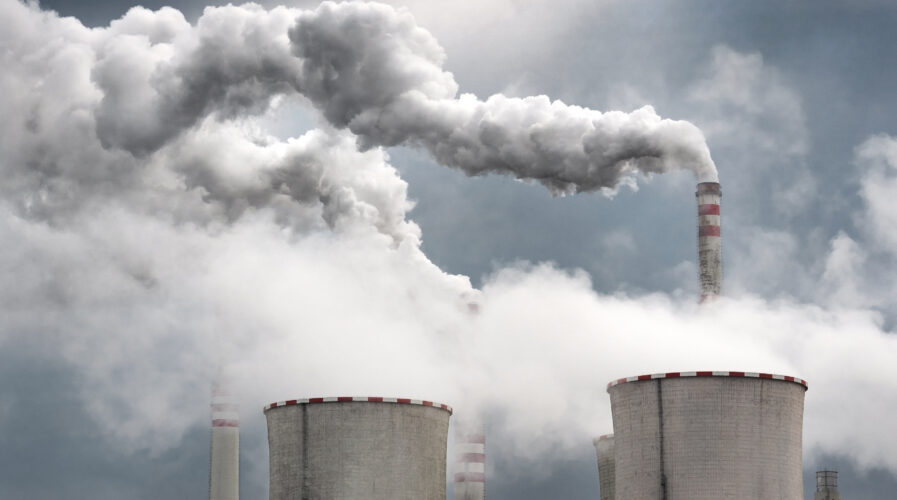
(Source – Shutterstock)
APAC lagging sustainability efforts compared to rest of the world
Over the last few years, governments and organizations around the world have made commitments toward sustainability and reducing their carbon emissions to create a more sustainable environment for the future. Some have made drastic changes to rules on carbon emissions, including banning products and technologies that have high carbon emissions.
In fact, almost every country and organization, be it large or small, have programs or strategic priorities to achieve sustainability initiatives. Big tech companies and developed nations are leading the change by implementing rules favorable for a greener future. For example, most countries are now pushing towards a reduction of gas-powered vehicles and promoting green and electric vehicles instead.
While the world continues to strive toward this goal, a global survey of executives by the Harris Poll and Google Cloud recently highlighted some concerns about achieving sustainability in the Asia Pacific region (APAC). To be precise, the study showed that 61% of APAC executives reported that their organization is guilty of greenwashing, and roughly two-thirds question how genuine or effective their organization’s sustainability initiatives are.
According to Karan Bajwa, Vice President for Asia Pacific Google Cloud, the lack of sustainability programs and quantifiable measurements are identified as the most significant barriers to sustainability transformation across APAC. The survey demonstrates that while executives in the region are especially optimistic about sustainability compared to peers around the world, APAC executives and their organizations lag behind those in North America, Europe, the Middle East, and Africa in having programs and strategic priorities to achieve sustainability initiatives.
“The International Panel on Climate Change report is a stark reminder that it is now or never for climate action. Since joining Google Cloud, every conversation that I’ve had with customers’ Board of Directors, CEOs, and CTOs have involved sustainability as a strategic imperative. Our planet urgently needs it, and consumers, employees, and investors demand it. As organizations ramp up sustainability transformation efforts, technology innovation is what executives believe will have a lasting impact on the sustainability of their organization and the planet,” commented Bajwa.
Interestingly, despite the concerns about not being committed towards sustainability, the survey also highlighted that 77% of these executives believe that sustainability can drive significant business transformations, compared to 73% globally. Many identify environmental, social and governance (ESG) initiatives as their top organizational priority, ranking ESG on par with business model evolution and customer relationship and experience optimization.
However, the reality is that executives struggle to have sustainability programs in place or quantify their efforts, and APAC trails the pack. While nearly all executives report having at least one program in place to advance sustainability initiatives, APAC executives are more likely to say that their organization does not have sustainability programs or strategic priorities in place.
Is sustainability just a dream in APAC?
For APAC and pretty much every organization around the world, revenue growth is key. But the challenge most of them face today is how they can achieve the ideal revenue growth while remaining committed to sustainability.
For large enterprises, many have already switched towards more sustainable materials in their production and manufacturing, as well as their supply chain. The situation is not the same in APAC though. The survey showed that almost a third of APAC executives claim that their organization is focused more on revenue growth, even if it is harmful to the environment. More than half also felt that most of their organizations are not serious in their commitments made towards sustainability.
Tech innovation is the top area executives believe will impact the sustainable growth of their organization and of the planet. Over three in four executives believe that technology helps transform operations, socialize initiatives, and measure and report on the impact of their efforts. Executives are putting their money and time where it matters, as the top two investment areas for 2022 are technology and sustainability.
Looking at countries specifically, Indonesia and Taiwan seem to be leading in prioritization and best practices towards sustainability with Japan and Singapore being one the least serious about the cause.
For Google, the good news is that it is still early on many companies’ sustainability journey, with the majority in the planning and early implementation phases of programming. The evidence points to technology as the path forward, enabling executives to narrow the gap between ambitions and impact.
As Bajwa puts it, “our goal is to ensure that sustainability teams always have a seat at the planning table, so we can work together on using cloud technology to build a more sustainable future.”
READ MORE
- Ethical AI: The renewed importance of safeguarding data and customer privacy in Generative AI applications
- How Japan balances AI-driven opportunities with cybersecurity needs
- Deploying SASE: Benchmarking your approach
- Insurance everywhere all at once: the digital transformation of the APAC insurance industry
- Google parent Alphabet eyes HubSpot: A potential acquisition shaping the future of CRM


